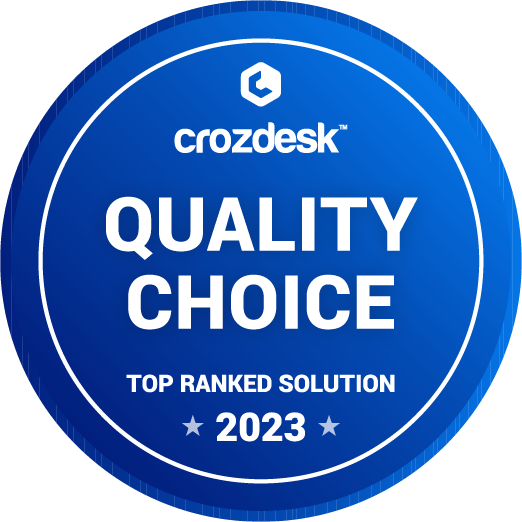PIM System – Single Source of Truth About Products
Speed is a crucial feature in eCommerce for companies to remain competitive. This can involve the speed of order delivery, handling returns, or responding to customer requests. However, from our perspective, the most critical aspect is the ability to offer new products to customers as quickly as possible. The speed of listing and adding products across various channels is a major challenge for many companies.
So, how do you deal with the various requirements of different sales channels and the tedious task of rewriting data? The answer is a PIM system!
Challenges in Product Listing
One of the biggest challenges companies face is the need for quick product listing, as any delay can potentially mean a loss of profits. However, product listing is a complex process requiring various data types. The most common types include:
- Product code and name: Basic identifiers for each product.
- Parameters describing the product: Information such as dimensions, material, performance, and other crucial specifications for customers when making purchasing decisions.
- Legislative data: Includes country of origin, customs code, and other regulatory information that must be met for each market.
- Commercial texts and translations: Quality descriptions that highlight the product’s advantages, including translations for foreign markets.
- Product images: Visual content.
- URL, SEO, and keywords: Settings that ensure the product is easily searchable in organic results, which is crucial for increasing its visibility and sales.
- Prices, labels, and discounts: Correct price and discount settings in accordance with legislation that can be communicated accurately and not mislead customers.
This is quite a large amount of data that requires extensive management. Among other things, the product must be made available to customers as soon as possible, not only on their own eShop but also on various marketplaces (i.e., online platforms that offer products from different sellers and ensure the transfer of orders directly to them). Such platforms include Amazon, eBay, Kaufland, Allegro, or local platforms like Alza, Mall, or Heureka in the Czech Republic. This requires additional data supplementation according to the parameters and rules set by each marketplace individually.

One of the biggest challenges is obtaining this information, which can vary significantly by industry. Ideally, vendors themselves provide all the necessary data to sellers. However, there may be situations where sellers are forced to gather this information themselves. This requires manual and often very demanding work, as they must collect information from several different sources, such as websites, emails, or documentation.
Another significant challenge is the efficient and quick transfer of this data to all relevant channels. As already mentioned, the listing is not only connected to own eShops, products must often be available on various online marketplaces. However, the work does not end there. Products must also be listed in the ERP system to enable purchases, manage warehouses, or ensure accounting. In some cases, ERP systems are automatically linked to eShops, allowing for easy and automated data transfer. However, ERPs do not send all data; exceptions often include texts, images, SEO, or promotional prices, which must be manually supplemented directly into eShops.
Manual listing of one product can take up to 15-30 minutes, which multiplies with the number of systems that are not automatically connected. This is an enormous amount of time and inefficient work. Manual work also increases the risk of errors that can occur when manually rewriting information!
How to address these challenges?
WisePorter as a Single Source of Truth About Products
Centralized Solution
A PIM system represents a centralized solution that simplifies the management of all product-related information. It connects all data and information to provide the user with a comprehensive overview, all in one place. There is no need to tiresomely search for information from different sources, as the PIM system consolidates all the necessary data.
Automation

Automation is key to efficient product management. A PIM system can automatically connect various data sources, such as vendor and manufacturer feeds, their websites, product sheets, ERP systems, and more. By using a PIM system, you can send data to all sales channels and tailor different information specifically for each channel where desirable (e.g., SEO and URL), while data that is inherently consistent is entered only once. This eliminates iterating work and increases efficiency.
Generating Missing Data
When managing data, we often encounter situations where the lack of necessary information leads to laborious and time-consuming manual searching. This unnecessarily diverts attention from more important tasks. So, what to do? The product catalog offers several solutions.
- AI: Even PIM systems today can use artificial intelligence to help generate sales texts based on the provided information. It can also assist with translations into different languages.
- SEO and URL: Utilization of well-defined rules and templates.
- Categorization: The PIM system offers the possibility of mapping rules, i.e., assigning information to different category trees not only for own websites but also for marketplaces.
Working with Images
Images are often the most labor-intensive part of working with products. A PIM system can automatically download images from manufacturers, assign them to specific products, and adjust their size, resolution, type, and display order. Advanced AI techniques enable automatic edits, such as cropping, creating low-resolution previews, removing backgrounds or watermarks, and tagging with keywords for easier searchability.
Why Choose a Product Catalog?
The main advantages of a product catalog are:

- Speed: A new product can be listed and launched for sale within a few minutes.
- Efficiency: Thanks to automation, you can manage up to ten times more products with the same number of employees.
- Data Quality: The system ensures that errors in the data are not published until they are corrected.
- Single Source of Truth: It provides a complete overview of the product, including prices and stock levels. All systems are automatically connected and work with the same data.
Facing challenges in product listing? WisePorter offers a comprehensive solution for product management. Contact us and get a free DEMO version!
Images for this article were used from https://storyset.com/




